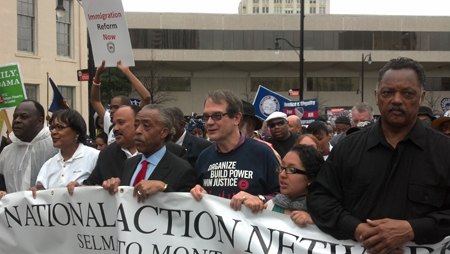The UAW Is Whistling Dixie, Again

The UAW has been a bit luckless in its organizing efforts of foreign automakers in the U.S. Recent attempts to brand transplanted Asian and German automakers as human rights abusers have gone a bit over the heads of the targeted working masses. With that being a dud, the UAW is back to old-style organizing, and back at its old target, Nissan. The UAW has tried two times, two times it received a black eye in Smyrna, TN. The UAW is back to collect another shiner.
According to Reuters, the UAW met with Nissan workers “to discuss another organizing effort at the Japanese automaker’s first U.S. factory.” The meetings also included contract workers of Yates Services, “who are paid less than Nissan workers, according to UAW officials.” Says Reuters:
“The “information” meetings are an early step in bringing about a vote among workers at the Nissan plant in Smyrna. Most union elections are held once a majority of workers agree to allow one. Many union organizing efforts fail before a vote is held.”
Smyrna have twice refused the advances of the UAW.
- A 1989 vote was 1,622 to 711.
- In 2001, in an organizing drive led by King when he was the union’s chief organizer, Nissan workers rejected the UAW by a 2-to-1 margin.
After the 2001 vote, King said Nissan had “won round two” and said that “there will be round three and four.”

Bertel Schmitt comes back to journalism after taking a 35 year break in advertising and marketing. He ran and owned advertising agencies in Duesseldorf, Germany, and New York City. Volkswagen A.G. was Bertel's most important corporate account. Schmitt's advertising and marketing career touched many corners of the industry with a special focus on automotive products and services. Since 2004, he lives in Japan and China with his wife <a href="http://www.tomokoandbertel.com"> Tomoko </a>. Bertel Schmitt is a founding board member of the <a href="http://www.offshoresuperseries.com"> Offshore Super Series </a>, an American offshore powerboat racing organization. He is co-owner of the racing team Typhoon.
More by Bertel Schmitt































Comments
Join the conversation
People who think government agencies are sufficient to ensure safe workplaces and good working conditions are dreaming. Go check out your typical chicken processing plant down south.
Well if they are successful I will cross Nissan off my list of car choices when shopping next time just like I have GM, Ford and Chrysler.
The auto unions would do well to keep out of the South -- anyone knows that they have a history of not being particularly forward-looking when it comes to labor, organized or otherwise...
The contributions of 40 hour work weeks, safe work conditions, fair pay, and fair benefits are great accomplishments attributed to unions. Having said that to force unionization on a business that is providing fair wages, safe working conditions, and fair benefits when the majority of the workers don't want the union is an example of union strong arming. Unions in Germany are out of control with Opel being a prime example. Opel is the weak link and getting anymore concessions out of Opel will eventually lead to the demise of Opel and the loss of jobs for Opel workers. I do agree with Big Al that the unions have contributed to the Big 3s problems, but then so has mismanagement and top management receiving large pay packages for poor performance and bad decisions. There is plenty of blame to go around. GM needs to clean out the Akersons and the rest of their top managers and they need to replace them with real car guys in top management. They also need to change their bonuse and pay system that when the company loses money then management takes a proportional pay cut to the loses. Bonuses should be based on the actual profitability and not on stock price.